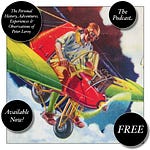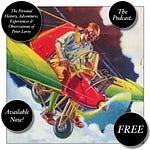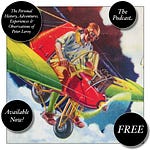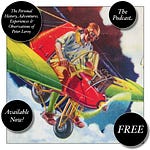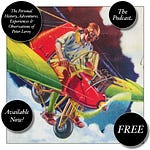10
“WHEN I GOT OUTSIDE, I remembered that I didn’t have a ride. I took my shoes off and pulled my hem up and walked home—”
“—in high emotion, exhilarated. It showed in your walk, in your eagerness to take the next step, as if you were impatient with your body because it couldn’t move you as quickly as you willed it to. You were eager, eager to let your family in on the step you’d already taken, to share with them your excitement, your keenness.”
“Basically, I wanted to get it over with. I knew there would be quite a scene when I announced that I was going to be working at the Seagull’s Perch or the Bayview Resort Motel—or whatever they were going to call it.”
“I suppose your parents might have felt awkward about the idea of your working at a place that would be catering primarily to tourists, to outsiders. You know—I can see that it might have seemed belittling to them, as if their girl were becoming a servant, serving the rich.” She gave me a puzzled look. “It might have seemed a debasement of the dignity of the family,” I suggested, “a class distinction imposed upon them.” She looked as if she wasn’t sure whether to take me seriously or not. “The have-nots waiting table for the haves, the proletarian workers once again getting screwed by—”
Her eyes lit up and she pointed a finger at me. “Now you’re getting warm,” she said. “I knew that my father was sure to think that no matter what they called the place, Sunrise Cove or Moonlight Bay, it was a motel. And as far as he was concerned a motel was the functional equivalent of a whorehouse.”
“Still,” I said, “you stepped right out—”
“Yes, I did.”
“—walking with that handsome stride, whether you were eager to deliver the news or just eager to get it over with, and since the outfit you had made for yourself was snug, closely fitted to your firm young body, and because the nylon fabric you had chosen was stretchy and slippery, your determined and eager stride made the dress cling, with each and every one of those eager strides, to the musculature of your youthful nates and thighs.”
“Wow! Do you actually know any of this, or is it all just wishful thinking?”
“I know! I do! I was riding my bike to your house that day, to see Raskol, and I saw you walking along. You had never looked more desirable. Oh, you were an adolescent’s dream! I ached from the lack of you.”
“Come on.”
“Don’t you remember my being in the kitchen when you made your announcement?”
“No.”
“Well, you were preoccupied, I guess. You were blinded by your own concerns.”
“Maybe. I may have been worried about my family’s reaction, but I was determined. I wanted that job, so I had been marshaling my arguments and stiffening my resolve as I walked home.”
“You wouldn’t be gainsaid, you told yourself.”
“Hell, no. No gainsaying this girl.”
“So, you arrived at your family home, a peculiar house, not very much more than a shack—”
“Hey.”
“—right at the water’s edge—”
“—not far from your grandparents’ house.”
“Right.”
“You may not remember the planks that led to my house,” she said. “Just two boards laid side by side. Do you remember?”
“I told you: I remember it all. The front of the house rested on land, but the rear of it sat on pilings in the river, so that the house actually hung out over the water. At the street, there was a stand of grasses and cattails that would have hidden the house completely if those older brothers of yours—Big and Little Ernie, the hope of the family, strapping lads who were determined to make something of themselves someday, when they tired of banging heads and swilling beer and stealing cars—hadn’t hacked an opening in it now and then.”
“That plank walk always made me happy. It bounced, and it made me feel bouncy. When I was a girl, I loved that. When I was teething my mother would carry me, or, less often, my father would carry me, up and down the planks, making me bounce until I stopped fussing and crying, and it always worked. I thought that walkway was an ingenious device that my father had built just for me, just to give me something to make me feel bouncy and happy, and I thought that the fact that none of the other little girls had anything like that at the entrances to their houses made me—and my family—awfully special and clever, but of course all the other kids just thought it made us weird, one of the many things that made us weird.”
[to be continued]
Have you missed an episode or two or several?
You can begin reading at the beginning or you can catch up by visiting the archive or consulting the index to the Topical Guide. The Substack serialization of Little Follies begins here; Herb ’n’ Lorna begins here; Reservations Recommended begins here; Where Do You Stop? begins here; What a Piece of Work I Am begins here.
You can listen to the episodes on the Personal History podcast. Begin at the beginning or scroll through the episodes to find what you’ve missed. The Substack podcast reading of Little Follies begins here; Herb ’n’ Lorna begins here; Reservations Recommended begins here; Where Do You Stop? begins here; What a Piece of Work I Am begins here.
You can listen to “My Mother Takes a Tumble” and “Do Clams Bite?” complete and uninterrupted as audiobooks through YouTube.
You can ensure that you never miss a future issue by getting a free subscription. (You can help support the work by choosing a paid subscription instead.)
At Apple Books you can download free eBooks of Little Follies, Herb ’n’ Lorna, Reservations Recommended, and Where Do You Stop?
You’ll find overviews of the entire work in An Introduction to The Personal History, Adventures, Experiences & Observations of Peter Leroy (a pdf document), The Origin Story (here on substack), Between the Lines (a video, here on Substack), and at Encyclopedia.com.





